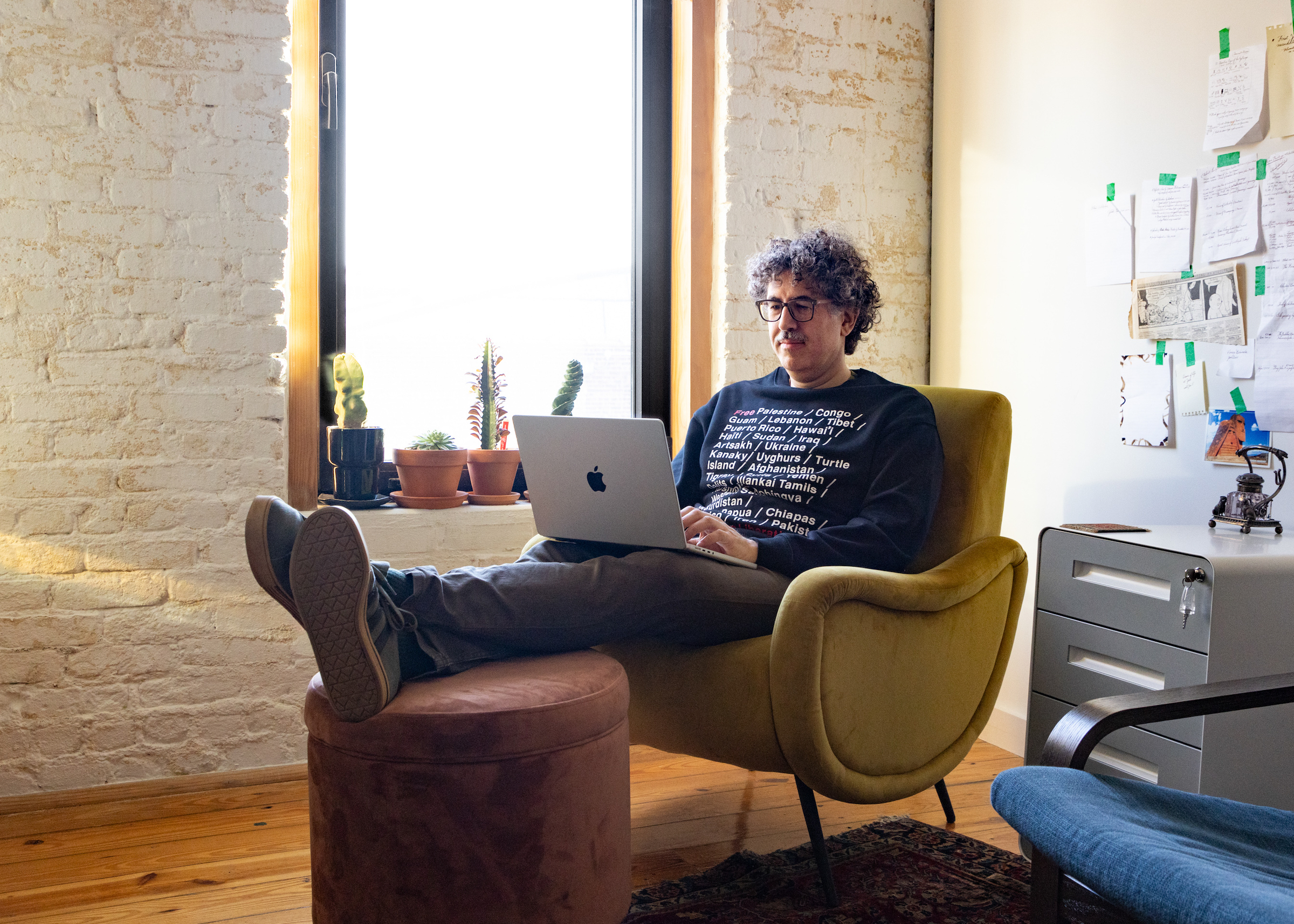Hrag Vartanian, editor-in-chief and co-founder of Hyperallergic, is one of two recipients of this year’s Susan C. Larsen Lifetime Achievement Award from the Rabkin Foundation. Recognized as an arts writer who has “had a generational impact on the field,” Vartanian and fellow recipient, feminist critic and curator Lucy Lippard, have each been presented with an unrestricted $50,000 cash prize.
The foundation, which began awarding prizes to visual arts writers in 2017, described Vartanian and Lippard as “two pathfinding writers who have shaped how we think about art and its social and political contexts.”
Vartanian’s award coincides with Hyperallergic‘s 15th year as an independent art publication. Co-founded in 2009 by Vartanian and his spouse, Publisher Veken Gueyikian, Hyperallergic has diverted the standard of arts journalism away from market-driven reporting in favor of platforming marginalized, diasporic, underrepresented, and disenfranchised perspectives championing equity, justice, and culturally informed criticism for a global audience.
Born to an Armenian family in Aleppo, Syria, and raised in Toronto, Canada, Vartanian received his master’s degree in Art History at the University of Toronto and worked in Beirut, Lebanon, before moving to New York City and embedding himself in the arts and writing scenes.
Rabkin Foundation’s current Executive Director and longtime journalist Mary Louise Schumacher noted in a statement that Vartanian is an “independent-minded writer who pursued ideas that were not always embraced by the wider art world.” The foundation specifically highlighted his feature compiling journalistic and research-based resources on the threat to cultural heritage within the then-Armenian (now-forcibly dissolved) enclave of Artsakh (Nagorno-Karabakh) in 2021, as well as his mural for Gaza, “Forbidden Sign Protest” (2023), on the Home gallery window front in Manhattan’s Chinatown in late October 2023.
The foundation also underscored the role of the Hyperallergic Podcast, hosted by Vartanian and featuring numerous guests (including Lippard herself, in expanding the horizons of arts journalism in addition to the publication, as well as Vartanian’s curatorial endeavors embracing and exploring the intersection of new media and virtual community-building in the early 2010s.

In addition to her feminist advocacy in the arts, the foundation acknowledged Lippard’s activism on the fronts of class, gender, and racial equity in cultural institutions, as well as her organizing for arts and culture workers against US intervention in Central America.
Lippard receives the Lifetime Achievement Award after having authored 30 books alongside innumerable reviews, essays, and articles, and steered groundbreaking curatorial projects in the scapes of feminist, political, conceptual, and environmental art throughout her career. Emerging into the scene during the 1960s and juggling dozens of gallery and studio visits a week, Lippard made quite the splash in 1971 as the curator of the landmark exhibition Twenty Six Contemporary Women Artists at the Aldrich Art Museum in Connecticut. The show’s influence continues to reverberate in curatorial and literary endeavors through today, and a 2022 restaging at the institution reflected on the exhibition’s enduring impact on feminist art.
Lippard and Vartanian join previous Lifetime Achievement Award winners such as the New Yorker‘s late art critic Peter Schjeldahl, Cristopher Knight of the Los Angeles Times, former New York Times critic Roberta Smith, and Maine-based art writer and Hyperallergic contributor Carl Little.
“They are vanguards,” Schumacher said of Lippard and Vartanian. “They have demonstrated to the field how central arts writing can be to our most critical, collective conversations and have both inspired a new generation of arts writers.”

